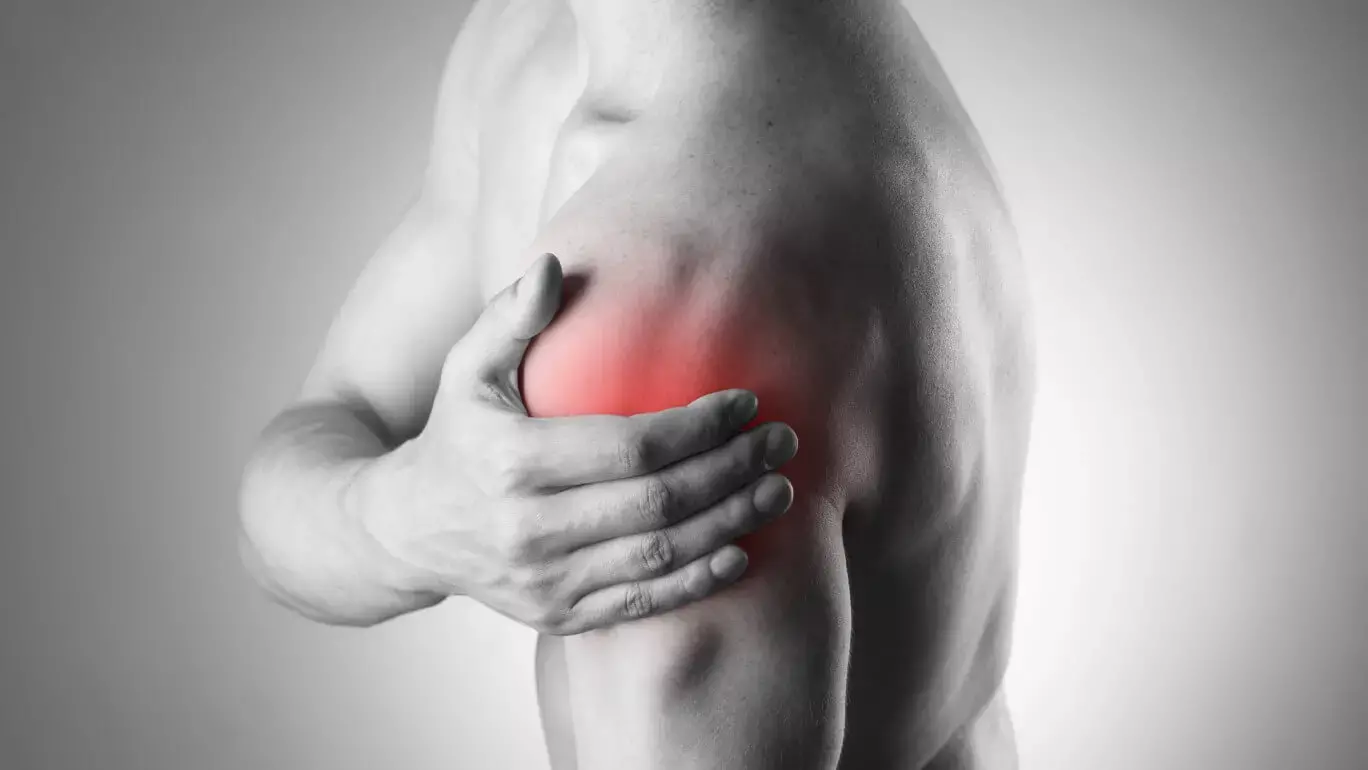- Home
- Medical news & Guidelines
- Anesthesiology
- Cardiology and CTVS
- Critical Care
- Dentistry
- Dermatology
- Diabetes and Endocrinology
- ENT
- Gastroenterology
- Medicine
- Nephrology
- Neurology
- Obstretics-Gynaecology
- Oncology
- Ophthalmology
- Orthopaedics
- Pediatrics-Neonatology
- Psychiatry
- Pulmonology
- Radiology
- Surgery
- Urology
- Laboratory Medicine
- Diet
- Nursing
- Paramedical
- Physiotherapy
- Health news
- Fact Check
- Bone Health Fact Check
- Brain Health Fact Check
- Cancer Related Fact Check
- Child Care Fact Check
- Dental and oral health fact check
- Diabetes and metabolic health fact check
- Diet and Nutrition Fact Check
- Eye and ENT Care Fact Check
- Fitness fact check
- Gut health fact check
- Heart health fact check
- Kidney health fact check
- Medical education fact check
- Men's health fact check
- Respiratory fact check
- Skin and hair care fact check
- Vaccine and Immunization fact check
- Women's health fact check
- AYUSH
- State News
- Andaman and Nicobar Islands
- Andhra Pradesh
- Arunachal Pradesh
- Assam
- Bihar
- Chandigarh
- Chattisgarh
- Dadra and Nagar Haveli
- Daman and Diu
- Delhi
- Goa
- Gujarat
- Haryana
- Himachal Pradesh
- Jammu & Kashmir
- Jharkhand
- Karnataka
- Kerala
- Ladakh
- Lakshadweep
- Madhya Pradesh
- Maharashtra
- Manipur
- Meghalaya
- Mizoram
- Nagaland
- Odisha
- Puducherry
- Punjab
- Rajasthan
- Sikkim
- Tamil Nadu
- Telangana
- Tripura
- Uttar Pradesh
- Uttrakhand
- West Bengal
- Medical Education
- Industry
Dynamic Posterior Instability Test: Novel Test for Posterior Glenohumeral Instability

Recurrent posterior shoulder instability has become an increasingly recognized cause of shoulder disability, especially among athletes. The presentation can be vague and therefore its clinical diagnosis is often overlooked. Few diagnostic tests exist and these tests are difficult to perform in an anxious and apprehensive patient. Many also lack high specificity and do not effectively distinguish posterior labral tears from other shoulder pathologies. As a result, Justin W. Arner et al worked to develop a new test, the dynamic posterior instability test (DPIT).
The article published includes the description of the DPIT as well as a modified DPIT test and evaluation of the accuracy of these tests in detecting posterior labral pathology.
Dynamic Posterior Instability Test (DPIT)
This test may be performed with the patient seated or standing.
The patient is then asked to simulate a normal throwing motion and to stop at the ball release position.
The examiner grasps the forearm with the elbow in extension and flexes the shoulder to approximately 140 degrees.
The patient is then asked to actively flex the shoulder while keeping the elbow straight, simulating the throwing motion.
A sudden onset of posterior shoulder pain similar to the presenting symptoms is considered a positive result. Slipping or instability feeling by the patient is also considered a positive result.
Modified Dynamic Instability Test (DPIT)
This test is performed after the DPIT examination. The examiner's thumb is placed just lateral to the posterior joint line on the humeral head. An anterior directed force is applied. The patient once again is asked to perform the throwing motion and the examiner again resists in the same manor. A positive test is when a significant improvement is seen in the patient's symptoms from the initial DPIT test. This stabilized the posterior humeral head and prevents it from posterior subluxation which causes the pain.
For a 9-month period, the DPIT and modified DPIT tests were performed on all patients evaluated for posterior instability of the shoulder. The records of all patients who had undergone a posterior labral repair (type VIII SLAP and posterior labral tears) were reviewed. The results of the DPIT and modified DPIT tests were compared to intra-operative findings. Anterior glenohumeral instability patients were also evaluated with these tests to serve as a control.
The results of the study were:
• Fifty-one patients had a positive and 3 patients had a negative DPIT test.
• Of the anterior instability patients, there was 1 positive and 19 negative test results.
• The sensitivity of the DPIT test was 94.4%, specificity 95%, the positive predictive value 0.98, and the negative predictive value 0.86.
• The results of the modified DPIT were the same as the DPIT test.
The authors concluded that – "The DPIT and modified DPIT tests provide a valuable new tool when combined with history and other physical examination findings improve the accuracy of diagnosis of posterior shoulder instability. The authors believe that the use of the DPIT/modified DPIT in conjunction with Whipple and active compression tests allows accurate identification of the sometimes difficult diagnosis of posterior shoulder instability."
Further reading:
Dynamic Posterior Instability Test: A New Test for Posterior Glenohumeral Instability
Justin W. Arner, Michael S. Nickoli et al
Indian Journal of Orthopaedics (2022) 56:2022–2027
https://doi.org/10.1007/s43465-022-00731-3
MBBS, Dip. Ortho, DNB ortho, MNAMS
Dr Supreeth D R (MBBS, Dip. Ortho, DNB ortho, MNAMS) is a practicing orthopedician with interest in medical research and publishing articles. He completed MBBS from mysore medical college, dip ortho from Trivandrum medical college and sec. DNB from Manipal Hospital, Bengaluru. He has expirence of 7years in the field of orthopedics. He has presented scientific papers & posters in various state, national and international conferences. His interest in writing articles lead the way to join medical dialogues. He can be contacted at editorial@medicaldialogues.in.
Dr Kamal Kant Kohli-MBBS, DTCD- a chest specialist with more than 30 years of practice and a flair for writing clinical articles, Dr Kamal Kant Kohli joined Medical Dialogues as a Chief Editor of Medical News. Besides writing articles, as an editor, he proofreads and verifies all the medical content published on Medical Dialogues including those coming from journals, studies,medical conferences,guidelines etc. Email: drkohli@medicaldialogues.in. Contact no. 011-43720751


